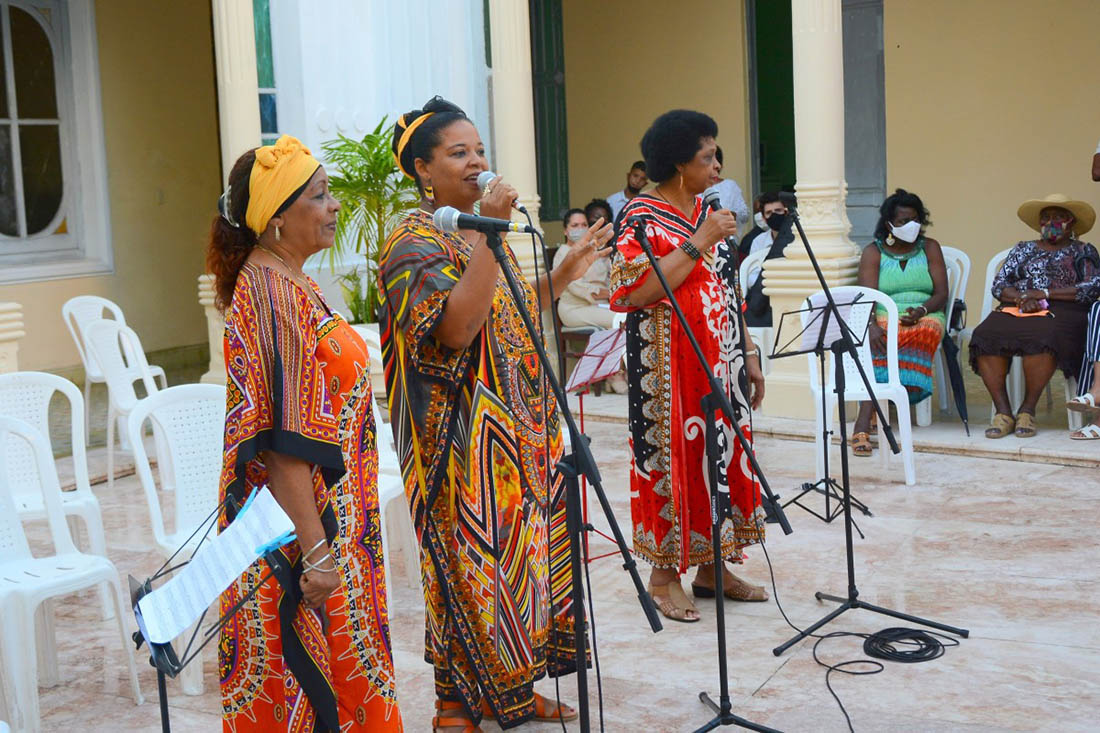Our Nicolás Guillén may have been the only Latin American author who used the original name of various African regions, as a name:
Yoruba soy,
cantando voy,
llorando estoy,
y cuando no soy yoruba,
soy congo, mandinga, carabalí.
Remembering all that we can be, due to the African presence in our mestizo blood and in the entire culture, we approached a family from Camagüey with Mandinga roots, who carry their African heritage with honor.
Settlement
On a hot night in May, a diaphanous conversation is born with a granddaughter and great-granddaughter of one of the most popular ethnic groups in Africa, settled mainly in Matanzas, from there they came to the Jaronú sugar mill to look for work and then they came to La Vigía, where since the 60’s of the last century they settled, to help their children during the downtime of the harvest.
Genesis of the Mandingas
It is worth noting that the Mandinga or Mandé are an ethnic group with a unique language and traditions, who live in Gambia, Senegal, Mali, Sierra Leone, Liberia… A significant group of American Afro-descendants comes from the Mandingas, a vigorous and cultured people, whose language expands to the Niger River. The word Mandinga comes from mandi (in their language it means son of a mother).
Those who come from the Jovellanos region and other towns in Matanzas were welcomed and baptized by the surname Sotomayor, hence the one who today leads this unique family.
Martha Sotomayor
She is the daughter of Dionicio (known as Bacallao), she was the eldest of the children born in Cuba, she came from Jovellanos looking for a permanent job with her Mandingo father and her other brothers. In the sugar mill, the father became a weigher and Bacallao the machinist of the sugar mill. During downtime he also drove the tractor and plowed the land, where they planted cane for the next milling.
The locomotive of the plant that for more than 30 years supported her home, today is in the courtyard of the Railway Museum to the delight of his descendants.
According to Martha, her father was a very upright man, with very clear values about family, love and doing good for everyone.
As a great secret he kept his creeds and dedicated himself to working and educating his children, so that they would be good people, who, without mediating any religion, would contribute to their country with honest work.
Under these precepts, which his wife Josefina Lubín also embraced, Martha (Hydraulic engineer and Russian translator), Lucia, who has a degree in Nursing and was a professor at the Institute of Medical Sciences for many years, and the son of the descendants grew up as an aviation engineer.
During our conversation with Martha we found out a lot about her roots, because she remembers the visits of the rest of the cousins and uncles to Jaronú and then to Camagüey, the family reunions to help a nephew had was lost his way and the religious ceremonies, which they did not were allowed to participate, only on visits to the capital where they were able to get closer and discover the beauty of a bembé or a request for health.
She currently stays close to her large family and is always ready to help in whatever is necessary.
Bonds of love
The neurosurgeon Yanmara is Martha’s daughter, since we started she was listening, she has nice memories of grandparents Bacallao and Josefina, because while her mother and aunt worked, she was at home and watched the making of three sweets, a family specialty, which for the value of 5 cents were sold to the children of the neighborhood and were very popular, until today the grown-up neighbors remember those coconut and peanut delicacies, which in the form of lollipops or nougats sweetened the days.
The granddaughter, as a specialist, had the happiness of fulfilling a mission in the African state of Gabon, with joy she comments on the songs and dances, the food and education of those residents that she would have wanted to show her family, she assures that she found many things in common between those people and ours and enjoyed the color of its vegetation, the sunsets and the harmony and respect in which animals and people live.
The ties of love and blood that unite Yanmara with her roots, allowed her to heal those in need in that distant and sister nation. The values inherited from her grandfather Bacallao, were present there.
Secrets
Now Martha is thoughtful, a tear of longing tells us that she remembers something else. When her father passed away, already close to 100 years old, he tidied her closet and found the secret of her faith, an image of Saint Lazarus.
Since then, every December 17th, she goes to the church dedicated to the saint and leaves flowers and candles, there she prays for the health of her family and friends and knows that her old man thanks her for disobedience, because, although he did not pass on his beliefs, praying for all is the right thing to do.
Pride of his race
Daughter and granddaughter proudly display her dark curly hair, the doctor wears her loose curls and Martha puts hers up with a fringed scarf, which gives her a distinctive seal of elegance.
For them, having blood from the forgotten continent is an honor, they feel sorry for the wars and inequalities that take place there and with all humility we return to the poet:
cuando no soy yoruba, soy congo, mandinga y carabalí.
Translated by: Aileen Álvarez García






